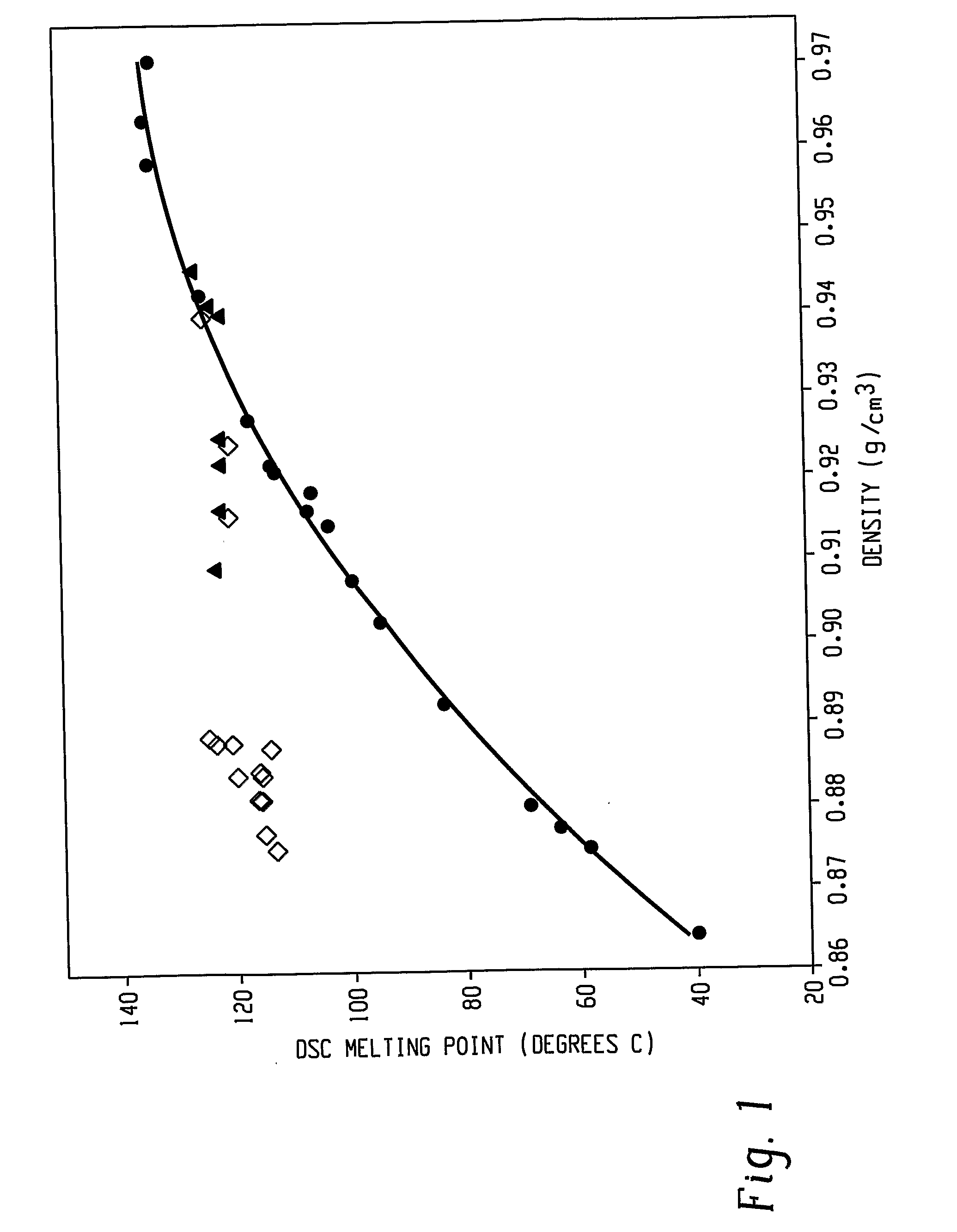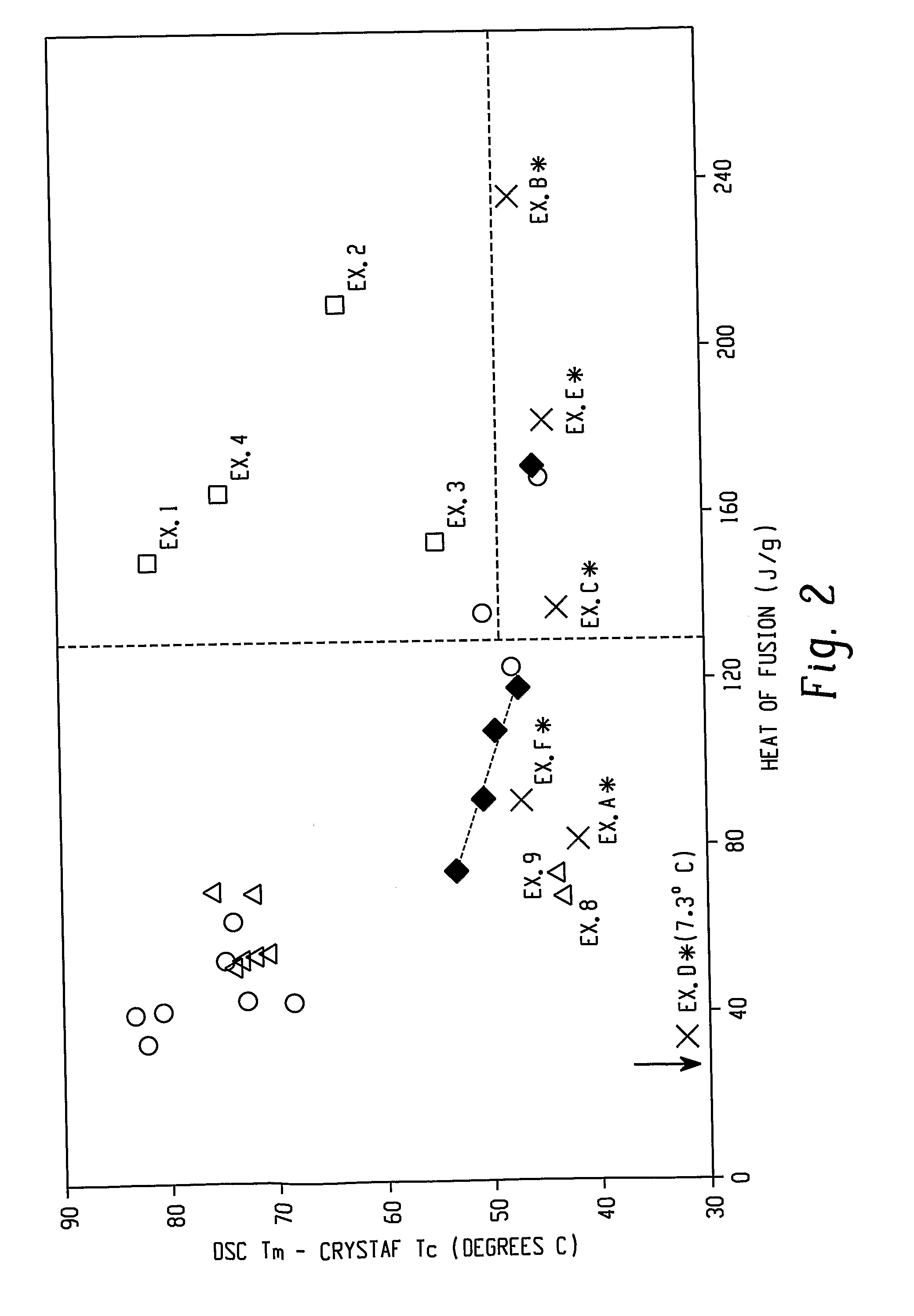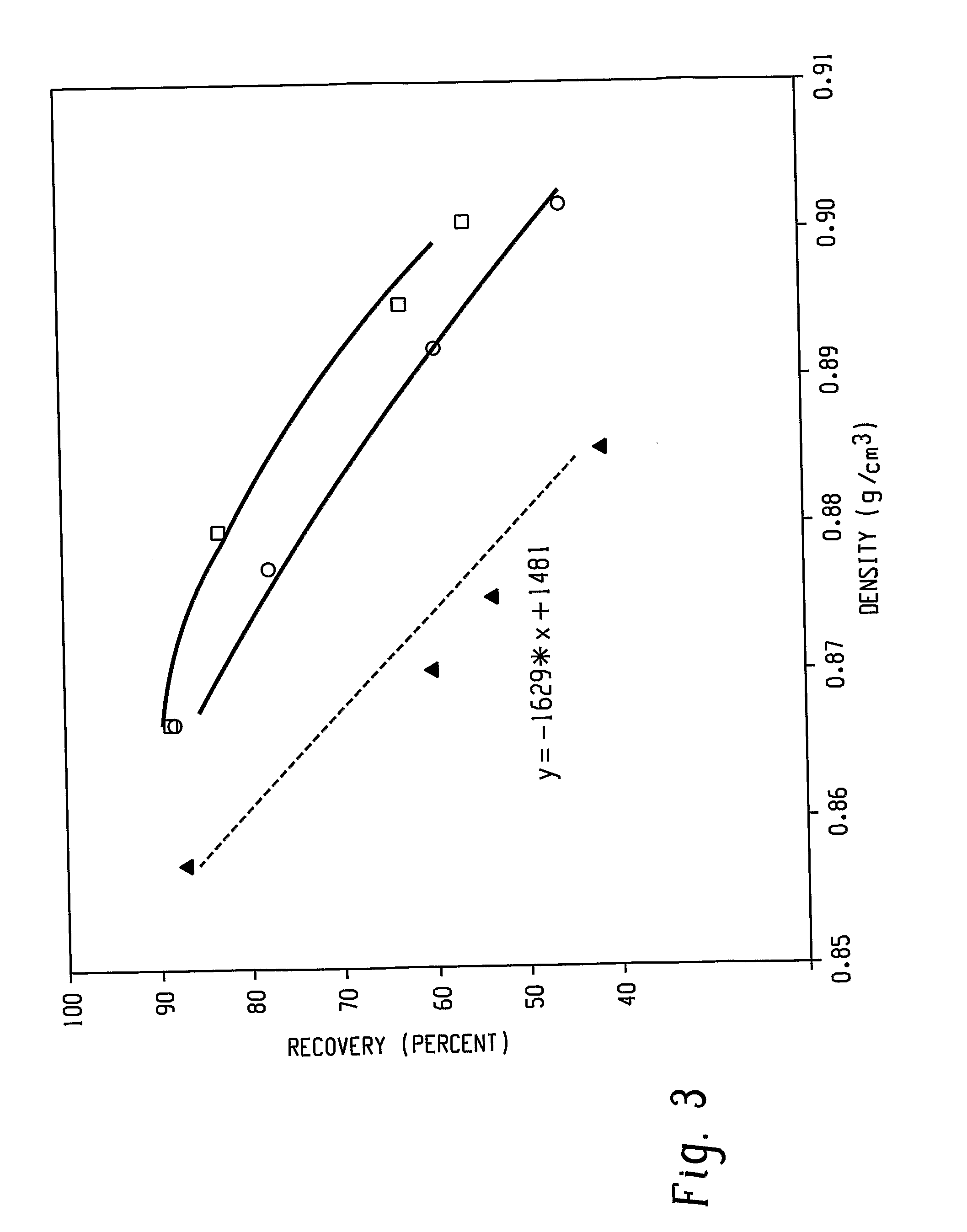Polymer Blends from Interpolymers of Ethylene/Alpha-Olefin with Improved Compatibility
a technology of ethylene/alpha-olefin and polymer blends, applied in the field of polymer blends, can solve the problems of limited utility of hao and compatibility that cannot be marginally improved, and achieve the effect of high melt strength and high impa
- Summary
- Abstract
- Description
- Claims
- Application Information
AI Technical Summary
Benefits of technology
Problems solved by technology
Method used
Image
Examples
examples
Testing Methods
[0191]In the examples that follow, the following analytical techniques are employed:
GPC Method for Samples 1-4 and A-C
[0192]An automated liquid-handling robot equipped with a heated needle set to 160° C. is used to add enough 1,2,4-trichlorobenzene stabilized with 300 ppm Ionol to each dried polymer sample to give a final concentration of 30 mg / mL. A small glass stir rod is placed into each tube and the samples are heated to 160° C. for 2 hours on a heated, orbital-shaker rotating at 250 rpm. The concentrated polymer solution is then diluted to 1 mg / ml using the automated liquid-handling robot and the heated needle set to 160° C.
[0193]A Symyx Rapid GPC system is used to determine the molecular weight data for each sample. A Gilson 350 pump set at 2.0 mil / min flow rate is used to pump helium-purged 1,2-dichlorobenzene stabilized with 300 ppm Ionol as the mobile phase through three Plgel 10 micrometer (μm) Mixed B 300 mm×7.5 mm columns placed in series and heated to 160...
examples 1-4
Comparative Examples A*-C*
General High Throughput Parallel Polymerization Conditions
[0232]Polymerizations are conducted using a high throughput, parallel polymerization reactor (PPR) available from Symyx technologies, Inc. and operated substantially according to U.S. Pat. Nos. 6,248,540, 6,030,917, 6,362,309, 6,306,658, and 6,316,663. Ethylene copolymerizations are conducted at 130° C. and 200 psi (1.4 MPa) with ethylene on demand using 1.2 equivalents of cocatalyst 1 based on total catalyst used (1.1 equivalents when MMAO is present). A series of polymerizations are conducted in a parallel pressure reactor (PPR) contained of 48 individual reactor cells in a 6×8 array that are fitted with a pre-weighed glass tube. The working volume in each reactor cell is 6000 μL. Each cell is temperature and pressure controlled with stirring provided by individual stirring paddles. The monomer gas and quench gas are plumbed directly into the PPR unit and controlled by automatic valves. Liquid reag...
examples 5-19
Comparative Examples D*-F*, Continuous Solution Polymerization, Catalyst A1 / B2+DEZ
[0243]Continuous solution polymerizations are carried out in a computer controlled autoclave reactor equipped with an internal stirrer. Purified mixed alkanes solvent (Isopar™ E available from ExxonMobil Chemical Company), ethylene at 2.70 lbs / hour (1.22 kg / hour), 1-octene, and hydrogen (where used) are supplied to a 3.8 L reactor equipped with a jacket for temperature control and an internal thermocouple. The solvent feed to the reactor is measured by a mass-flow controller. A variable speed diaphragm pump controls the solvent flow rate and pressure to the reactor. At the discharge of the pump, a side stream is taken to provide flush flows for the catalyst and cocatalyst 1 injection lines and the reactor agitator. These flows are measured by Micro-Motion mass flow meters and controlled by control valves or by the manual adjustment of needle valves. The remaining solvent is combined with 1-octene, ethy...
PUM
| Property | Measurement | Unit |
|---|---|---|
| temperature | aaaaa | aaaaa |
| molecular weight distribution | aaaaa | aaaaa |
| molecular weight distribution | aaaaa | aaaaa |
Abstract
Description
Claims
Application Information
 Login to View More
Login to View More - R&D
- Intellectual Property
- Life Sciences
- Materials
- Tech Scout
- Unparalleled Data Quality
- Higher Quality Content
- 60% Fewer Hallucinations
Browse by: Latest US Patents, China's latest patents, Technical Efficacy Thesaurus, Application Domain, Technology Topic, Popular Technical Reports.
© 2025 PatSnap. All rights reserved.Legal|Privacy policy|Modern Slavery Act Transparency Statement|Sitemap|About US| Contact US: help@patsnap.com



